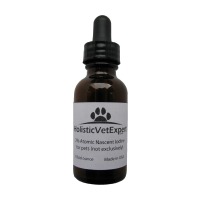
|
|


|
|
|||
Should Your Pet be Vaccinated?When you take on the responsibility of owning and caring for a pet dog, cat or even horse you also take on the welfare of the animal's health. A major concern of veterinarians and pet owners is the debate over whether or not vaccines are safe or even necessary. Recent studies are showing some common vaccines and the extended use of vaccines can have harmful and even fatal results in dogs, cats and larger pets including horses. Vaccines contain agents of a potential virus but also inject elements of the pathogens into a pet's system. When you consider humans are only vaccinated once for a particular disease and have a life expectancy approaching eighty years while dogs and cats are shot up with multiple virus vaccines annually during maybe a ten year span it raises a serious red flag about the safety of the drug therapy program. Why are vets and pet owners shooting up their "beloved" pets that often with harmful and toxic anti-viruses? There is also the exploratory research being done into what is called "vaccinosis" or the chronic disease from multiple and regular vaccinations. The argument goes on to suggest that what routine vaccinating has done is convert an acute viral disease in nature into a chronic disease never before seen. Unfortunately the sides for and against vaccination are at such opposing ends of the spectrum that many pet owners are left in the middle and confused. They want their dog or cat to be protected from common parasites and pet infections but certainly don't want to contribute to a debilitating and perhaps fatal disease. Knowing the more common dog and cat diseases, the success rate of vaccines and the potential side effects of any vaccine is imperative to making sound decisions regarding your pet's health. Another factor to consider is again that humans vaccinate at very young ages and perhaps pets should follow the same philosophy, treating puppies and kittens once or twice and then leaving their immune systems alone to do its work. If the vaccine is supposed to recognize a specific virus or pathogen and the dog or cat has the vaccine in him why would he need it regularly re-injected for eight or nine years? Asking these questions will help lead you to better pet care management and a healthier, more fulfilling life for your pet. | |||
|
We have Nascent Iodine!
| Case Histories |
MAX: A CASE OF IMMITICIDE POISONING
Results of routine heart worm treatment
Dana Matthews DC
Greg Hollandsworth DC
"Max the boxer has had quite a life. He was born in Texas on July 25, 2006 and for the first 2 ½ years of his life, he lived with a family who had too much going on to take proper care of him. They had too many kids and other dogs and so Max, being an energetic boxer puppy and too much to handle, got chained to a tree in the backyard. Finally the family decided to give Max up for adoption so that another family could offer him the life he deserved. Unfortunately, by the time they had decided to do that, Max had already been bitten by a mosquito that carried heartworms and it subsequently infected him...."


Home About Dr Preston Why Holistic? Resources Content Privacy Statement Site Map Contact Us
Copyright ©2009, Holistic Vet Expert, All Right Reserved





